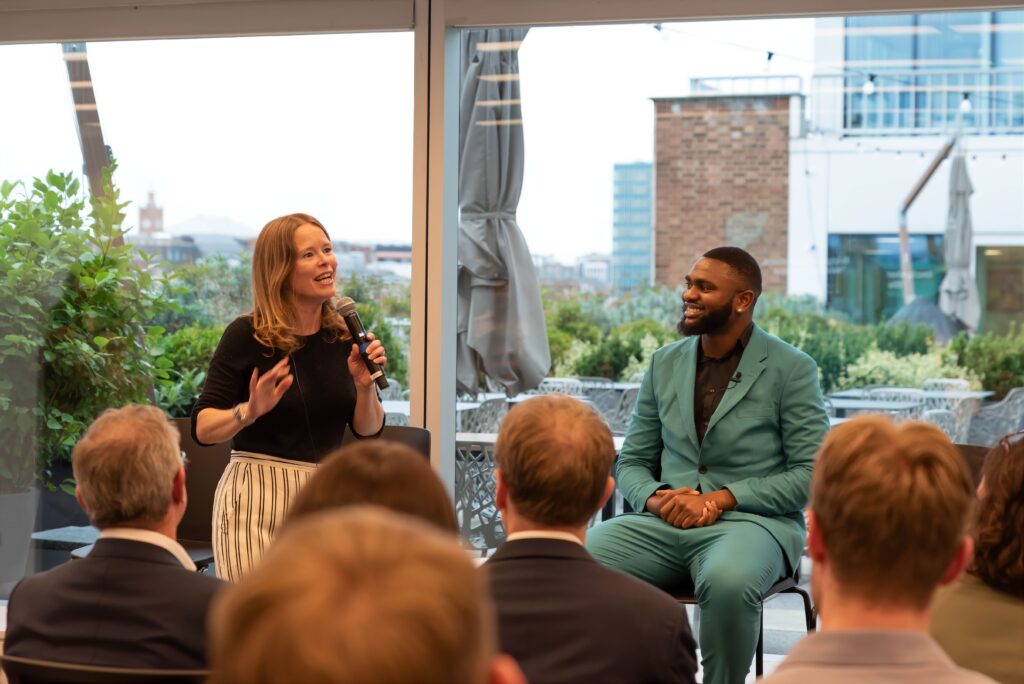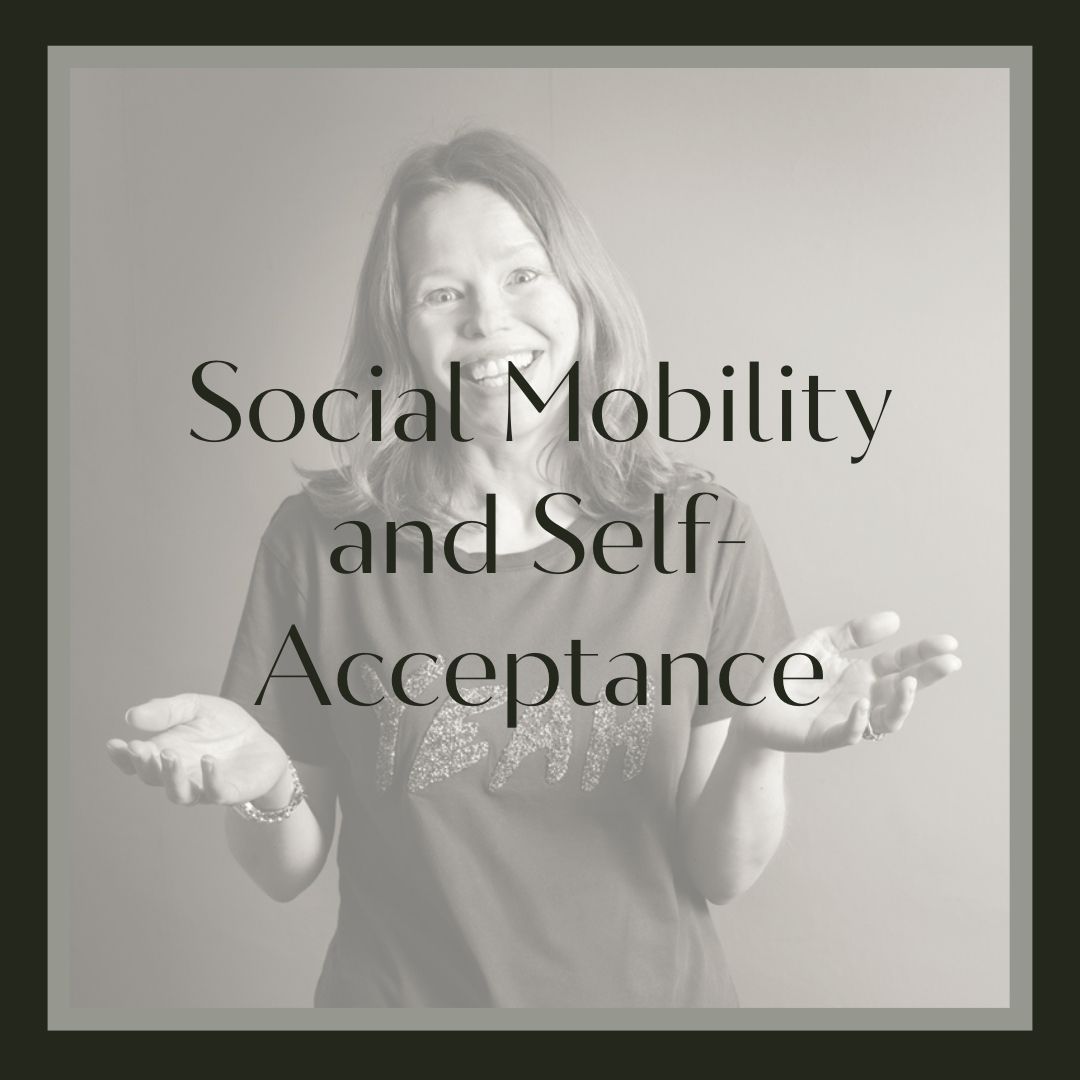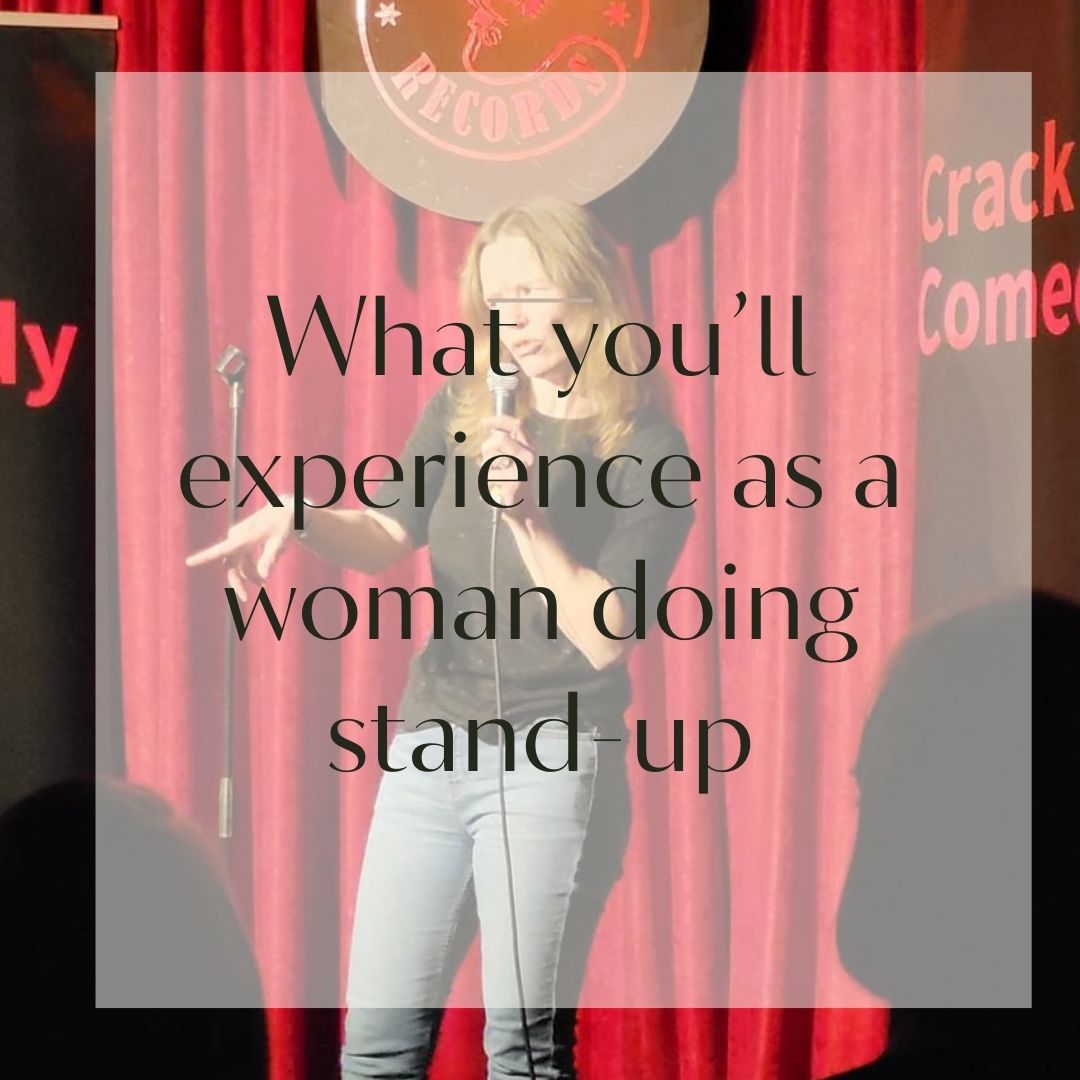One thing that working in the social mobility space has brought into sharp focus for me is how the different generations of my family have experienced social mobility in different ways (as I always say; just like investments, social mobility can go down as well as up!).
It has also prompted me to be acutely aware of just how much more difficult it is today for people from lower socio-economic backgrounds to access resources and opportunities than it would have been for previous generations.
With this in mind, I was delighted to be invited by Knight Frank to speak at a recent event held jointly by their Social Mobility (RISE) and Generation (UNITY) employee networks. Fittingly, the attendees represented a range of socio-economic and educational backgrounds as well as pretty much every generational category. Thankfully, I had the opportunity to share the stage with Gen Z Club founder Austin Okolo – make sure you check him out!
Being asked to share my story with a generational narrative made me realise that I hadn’t really put pen to paper in this area – something this post will kick-start.
From Ireland to the UK
My dad’s family history is largely undocumented but what I do know is that his mother was born c.1910 in rural Ireland. The paperwork I can find shows that she moved to London sometime around the 1930s and, given that electoral records show she shared a house with numerous other people and that she was a laboratory packer, it’s safe to say she was not a wealthy woman. Whilst being in menial work, moving to London will have improved her economic position, as it did of her brother who went on to become a postman and lived in a flat above a pub.
Post-war building boom
My dad was born in 1946 and, given that his family then moved from London to a council estate in Basingstoke sometime in the 60s, I know for a fact that they benefitted from the large-scale rebuilding that happened after the Second World War. The sneering that is sometimes prompted by the mention of council estates is to completely disregard the way in which an entire generation (or two) were lifted out of terrible conditions and allocated housing that positively impacted their health and that of their children. It is thanks to the ‘overspill’ programme that I was able to grow up in an area where we had front and back gardens, safe playgrounds, community facilities and good public transport.
Similarly, my mother’s family in which the men worked as builders and labourers and the women worked part-time in chip shops and schools, were able to live close together in housing that was appropriate to their needs. There were (and still are) generations of her family close to one another on the various estates. This was at a time when bungalows were for old people so they could live near their family, and not for speculative buyers to snap up and knock down so they could build a nice big two-storey house.
Right to buy
Fast forward to 1980 and ‘Right to Buy’ becomes a thing. I knew nothing about politics (because I was five) but I do remember the changes that happened to the gardens of the people who bought their previously council-owned homes. Walls went up. Doors and windows were changed. People started saying that those who bought their houses were “stuck up”, or those who still rented from the council were “pikeys”. We noticed who had money and who did not.
In the interest of balance I’ve started to look at different perspectives on what this has done in terms of the availability of affordable and/or social housing. One of the more interesting comments that stood out to me was from ScienceDirect (no relation to Sports Direct 😉 )
“We find that Right to Buy (RTB) can improve the aggregate welfare of low-income households only if the council housing quality is sufficiently low such that middle-wealth households have no incentive to exercise RTB.” (Read the full article here: The Right to Buy public housing in Britain: A welfare analysis – ScienceDirect)
See also this piece in The Week:
“For many buyers, the policy was life-changing. It helped home ownership jump from 55% of householders in 1979 to 71% in 2003. It gave council tenants the opportunity to sell up and move, which was difficult for those in the council system.”
A backward step
As I said at the start of the post, social mobility can go down as well as up. What’s striking is many people will think of this as someone very wealthy losing the lot. The reality is that backward social mobility often impacts those who can least afford it. And when you speak to people who have experienced upward social mobility, many will have taken a painful step back before going forward.
In my family’s case, it was redundancy followed by terminal illness and the death of my father. When the breadwinner dies in a low-income family the impact can be shattering and far harder to rebuild from than someone who was born into the middle class. I know that if I were to die tomorrow, my children would not have to worry about money or the security of their housing situation. This is something that the kind of people who moan about the price of electricity whilst enjoying a hot tub would do well to think about.
It feels hard to share facts like this but the more that we do, the more people come forward with similar stories. Those who were impacted by divorce, redundancy, illness or bereavement. Try being in a single parent family on a low-income when that parent becomes ill. Try ‘working hard’ when you’re working part-time whilst studying and caring for others. Try finding a ‘better house’ to live in when the housing list is 1.21 million people long…(source: Gov.uk).
A five-generational leap
Fortunately for me, the backward step came when I was old enough to understand what was going on and young enough to single-mindedly focus on getting out. I was also bright enough to get through school whilst ballsy enough to take some massive risks.
A number of things combined which meant that by the time I was 30, I’d leapt up the IFS Median Household Income chart to a position that would ordinarily take five generations to achieve. If you want to see where you fit in, head to: Your household’s income : Where do you fit in? | Institute for Fiscal Studies (ifs.org.uk)
And what were those things? For the sake of brevity, I’ll see if I can keep it to five:
- Knowing what I didn’t want (to be poor, to repeat a cycle)
- A second chance at education (thanks to Basingstoke College of Technology)
- Meeting the female role models I needed to see (thanks to Reed Employment in Reading)
- Not being afraid to put myself forward (what’s the worst that could happen?)
- Mentorship and support (from people of all backgrounds who took a chance on me :))
Facing the future
I make much out of (and take the piss out of) the fact that I am raising my children in a middle-class bubble. They have been born without the financial and emotional instability that coloured my earliest years and continues to impact the lives of other members of my family. As a result, I am acutely aware of inequalities and frequently have moments when I feel out of place both where I’m from, and where I find myself today. I shared a few examples at the event which I’ll share with you now:
- Social workers telling me they forget I’m a family member because I “sound like a professional”
- Family members mocking my children using the term ‘cutlery’ instead of ‘knife and fork’
- Asking a gallery curator about a book and being told in a patronising tone “that’s the catalogue“
- An old family friend saying I “talk like a teacher” followed up with “and I don’t like teachers”
All of this, and all I am, relates to what it is to experience social mobility. How it colours lives and is inaccessible to some. If you speak to senior leaders in their 50s and 60s, they will tell you how it was possible to work your way up from the shop floor or to live in a flat share in the middle of London without selling a kidney.
My podcast; Challenging University, features stories of people like the creatives who were able to use their dole money or Enterprise Allowance Scheme funding to pursue their dreams. Or the finance directors who got a foot in the door thanks to the Youth Training Scheme or the local insurance firm taking on a junior. These things are harder to do now.
But it’s not all bad. And there is always hope. We just need to show people that there is always another way. To help with this, I’ve captured a list of organisations who are dedicated to helping young people in practical ways. You’ll find them here: Helpful Organisations – Challenging University with Toni Kent
So what’s next?
Well, there’s more to come for sure. At 18 and 16 my children are stepping into the next phases in their own lives and, thanks to their mother’s inability to stop talking about class bias and social mobility I’d like to think they have a more empathetic outlook and wider world view than if they’d been wrapped in cotton wool.
As for me, I’m excited for my next bookings and continuing to help people expand their knowledge and understanding of how where you’re born, and the family you’re born to, impacts the opportunities you can have access to – and why we need to make sure we work together to make things fairer for generations to come.
Book Toni to speak at your next event
To book me, it’s easy! Either drop a line to Harry Gibson at Riva Media via [email protected] or pop your details in the Contact Form
Want to hear and see what I’m like first? Check out my showreel below!




